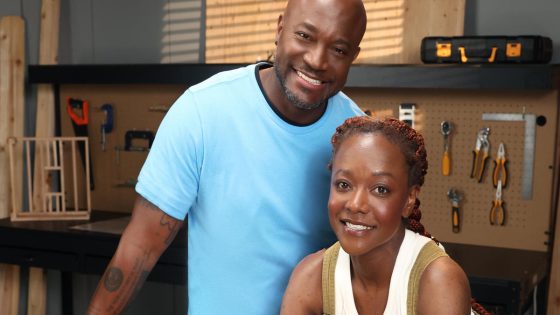Taye Diggs is opening about a mental health condition that has affected his family: schizophrenia.
The actor, 53, revealed for the first time that his younger sister Christian, 48, was diagnosed with the condition in her 20s.
“I didn’t know what to do,” Diggs told CBS News of his reaction at the time of her diagnosis. “I’m the older brother. Chris and I were very close. I was born first and then she was born, so we had a certain type of bond, and I had always thought I was there for her in whatever capacity she needed. And then we were hit with this, and I had no idea. I had no understanding of what schizophrenia was.”
Schizophrenia, which affects about 24 million people worldwide and 3 million in the U.S., is a mental illness that affects how a person thinks, feels and behaves. According to the Mayo Clinic, schizophrenia “may result in a mix of hallucinations, delusions and disorganized thinking and behavior.”
Though the revelation rocked the family, it answered why Christian went from being “very energetic and lively and bubbly,” as Diggs described, to “really depressed and lackluster.”
“It was great that we were able to put a name on how her behaviors were changing,” he said, but admitted they “immediately expected the worst.”
Like other mental health challenges, schizophrenia is often publicly stereotyped as “craziness.” Other misconceptions include thinking people with the diagnosis have a so-called split personality or unpredictable and dangerous behavior.
But, as the National Institute of Mental Health notes, most people with schizophrenia are not violent and it should not be confused with dissociative identity disorder (previously called multiple personality disorder or split personality).
“Many people who receive treatment can engage in school or work, achieve independence, and enjoy personal relationships,” the organization states.
“I didn’t know if she was going to be able to hold down a steady job. If she could be in a relationship and have kids,” he said. “But once Christian got with a good psychiatrist and found her right meds, it was the exact opposite.”
Now the siblings are trying to change others’ misconceptions about schizophrenia, partnering with global biopharmaceutical company Bristol Myers Squibb to launch the Live Your PosSCZible campaign. The national initiative aims to bring awareness to the condition and reduce stigma for those living with it.
“When I was first diagnosed, it was very shocking and a bit scary,” Christian Diggs says in a video for the campaign. “But of course, after receiving my diagnosis, I felt a little bit calmer about the whole thing, and I actually had hope because I could put a name on everything that was happening.”
Diggs said he wants to “change the conversation” around schizophrenia, especially after seeing his sister “blossom” through her journey with the condition.
“It’s in no way an easy thing to deal with, but it’s not the end of the world by a longshot.”
While there is no cure for schizophrenia, there are “many types of treatment available,” says psychiatric nurse practitioner Desiree Matthews, whom CBS News interviewed alongside Diggs.
“This is a very complex illness and something that at this point we need lifelong treatment for,” she said. “I’m very happy that Taye’s sister and the psychiatrist and the family together (were) able to find a care treatment plan that really worked for Christian, because treatment for schizophrenia should be individualized.”
Without treatment, schizophrenia can lead to other complications, according to the Mayo Clinic, including anxiety and depression, misuse of alcohol or drugs, not being able to work or attend school, money problems, homelessness and social isolation.
“Staying with your treatment plan can help stop symptoms from returning or getting worse,” according to the clinic.
Matthews says the campaign is important not only for the general public but also healthcare professionals to see the stories of individuals “really thriving, despite living with schizophrenia.”
“Unfortunately, we still have these negative perceptions of people living with schizophrenia from TV (and) from the movies,” she said, adding that people with schizophrenia “didn’t have a platform to show everybody what they were really capable of and what was possible living with schizophrenia.”
Source Agencies




